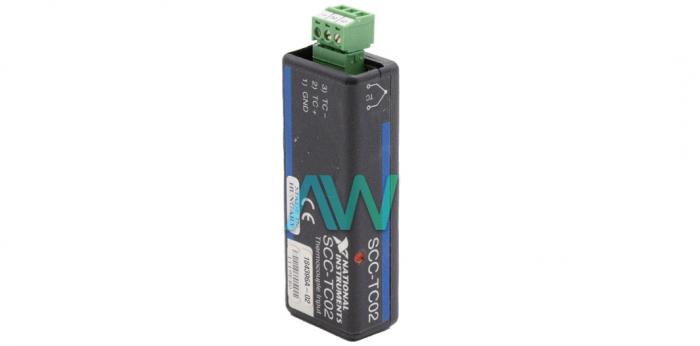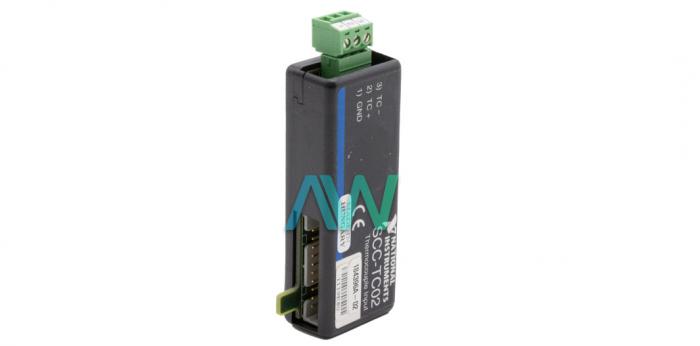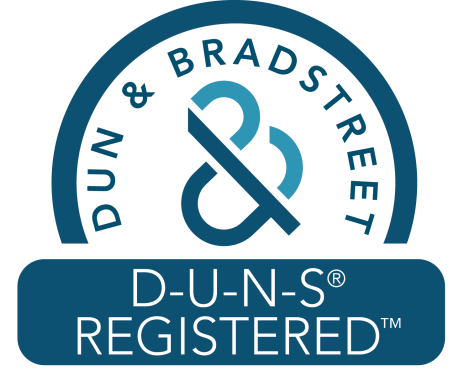Modular Systems > National Instruments > SCC


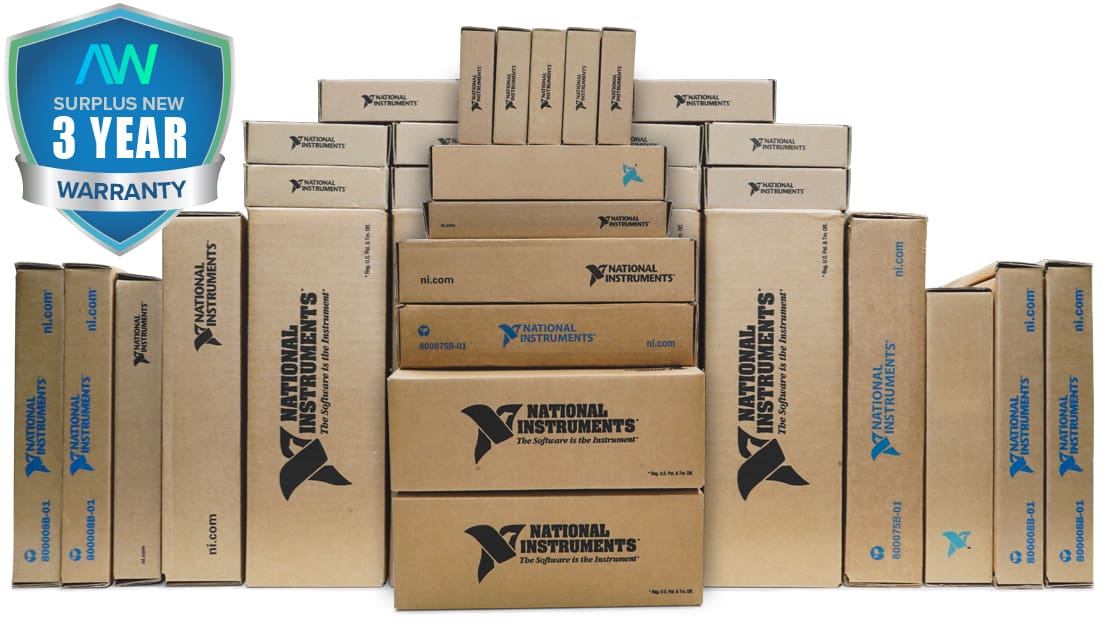
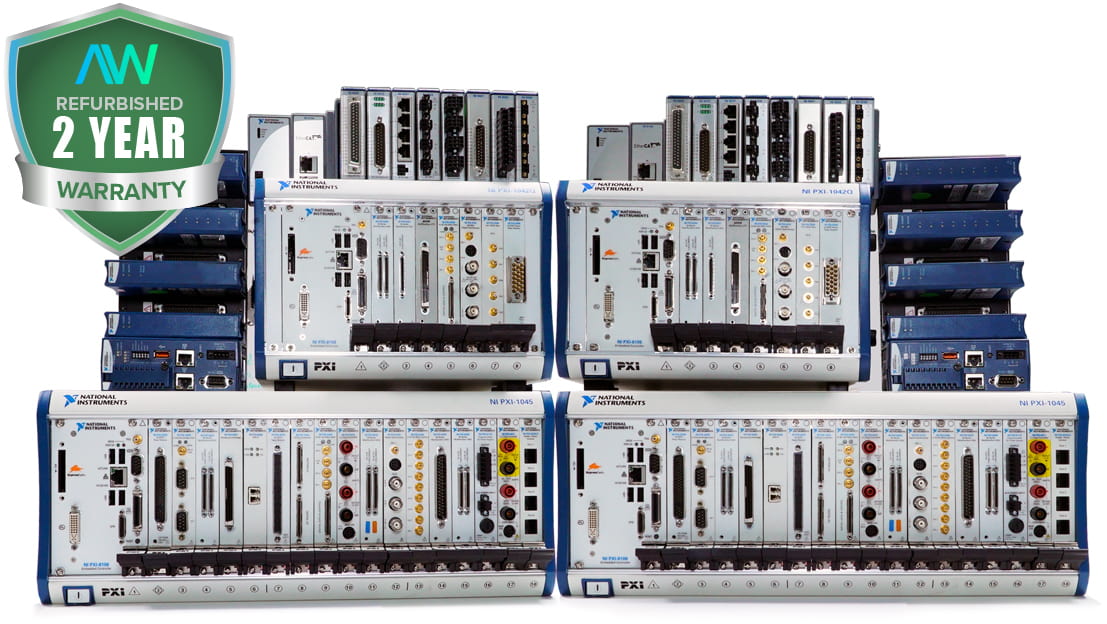
Pictures shown are a representation. Actual item may vary if no part number is provided on quote request.
✔ Same Day Calibration Available
✔ 2-3 Year Warranty Included
✔ Free Ground Shipping
Or speak to a sales representative for additional information:
Phone:
1-800-915-6216Email:
sales@apexwaves.comSCC-TC02 In Stock | Ships Today
SCC-TC02, 1 DIFF input channel, Thermocouple Input Module
National Instruments SCC-TC02 Thermocouple Input Module
The National Instruments SCC-TC02 (Part Number: 777459-04) acknowledges input signals from B-, E-, J-, K-, N-, R-, S-, and T-type thermocouples. Every module contains thermistor hardware fueled by 2.5 V, to adjust for cold-junction impacts and can identify open thermocouple circuits. Every module has one thermocouple input channel, which consists of a gain of 100 differential enhancers and a dual-pole 2 Hz filter. The open-thermocouple recognition hardware incorporated can cause estimation mistakes. These errors are the aftereffects of regular mode voltage at the input of the SCC and current spillage into the signal leads. The 10 Mω inclination resistor in the NI SCC-TC02 Thermocouple Input Module makes this error insignificant. With the 10 Mω bias resistor associated with ground and the 10 Mω pull-up resistor associated with +5 VDC, a current leakage of roughly 0.25 μA (5 V/20 Mω) streams into the unbroken floating thermocouple. Long thermocouple leads result in bigger voltage drops because of lead resistance.
The user can connect the SCC-TC02 Thermocouple Input Module to any analog input socket on the SCC carrier. The socket selected determines which E/M Series DAQ device's channels receive the SCC-TC0X signals. If the user operates the NI SCC-TC02 in a double stage setup, the SCC-TC0X must be the main stage module. The module can then be linked to any attachment J (X+9) and connect the second-arrange SCC to attachment J (X+1).
| Model | SCC-TC02, 777459-04 |
|---|---|
| Manufacturer | National Instruments |
| Series | SCC |
| Type | Thermocouple Input Module |
| Signals Accepted | TC+, TC–, and GND |
| Input Channels | 1 DIFF |
| Input Signal Range | ±100 mV |
| Warranty | 2-3 Year Warranty |
| SCC-TC02 Manual | User Manual and Maintenance Manual Available for Download |
| Price | Contact a sales representative for a quote. |
Associated part numbers for SCC-TC02:
National Instruments SCC-TC02 Frequently Asked Questions
Question: What input signals does the NI SCC-TC02 accept input from?
Answer: The NI SCC-TC02 accepts signals from B-, E-, J-, K-, N-, R-, S-, and T-type thermocouples.
Question: How many thermocouple input channels does the National Instruments SCC-TC02 have?
Answer: Each National Instruments SCC-TC02 has one thermocouple input channel.
Question: Can you use the SCC TC02 as a lowpass bandwidth input module?
Answer: Yes, you can use the SCC TC02 as a 2 Hz lowpass bandwidth ±100 mV input module.
Delivery:
Warranty:
All of our products are covered by our Apex Waves Warranty.
✓ 3 Year Warranty - New Surplus Parts
✓ 2 Year Warranty - Refurbished Parts
Returns:
No hassle return policy.
Dedicated customer service team.
Quick Quotes:
Receive Price & Availability Today!
Calibration:
Ask About Our Tiered Calibration Levels
Option & Modules:
Confirm Your Requirements or Versions
Repair:
Cost & Lead Time Available Upon Request for Service
Repair Evaluation: $150
Common Typos:
